Latest

Pressure injury prevention
Oct 22, 2024
The power of intervention in pressure injury prevention and management
by Sharon Maris, Director Global Medical Affairs for Pressure Injury Prevention
Pressure injury prevention interventions are key to reducing the risk of developing painful, resource intensive and costly pressure injuries.

Service
May 28, 2024
Arjo ReNu: a recycling solution that reduces the climate impact of healthcare
Medical consumables comprise a large proportion of the total climate impact of healthcare. As such, recycling solutions provide significant opportunities to reduce emissions.
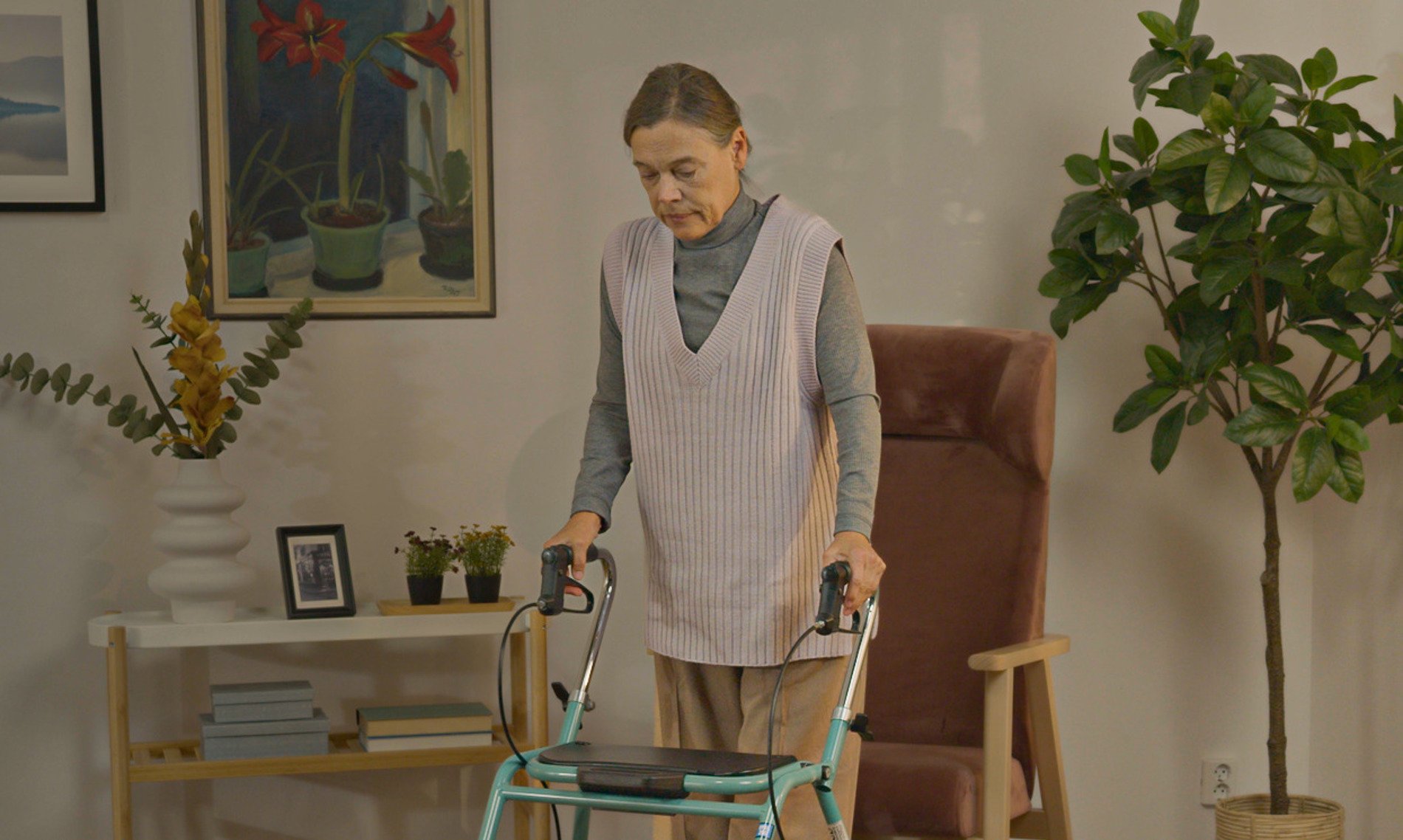
Designing care facilities
Feb 02, 2024
Facility architecture and design in focus: Part 1 – Quality care starts with meticulous planning and decision-making
Part 1 of 5. The foundation for quality care is laid long before the first patients and residents arrive at a healthcare facility. A meticulous approach to architecture and design paves the way for creating comfortable living conditions and an ergonomically sound workplace for the staff. In a series of five articles we are going to highlight the different stages in the architectural process – and their importance for the end result.

Designing care facilities
Feb 02, 2024
Facility architecture and design in focus: Part 2 – Stakeholder interaction: A key factor for resident wellbeing and a sound working environment
Part 2 of 5. The interaction between different stakeholders involved in creating a care facility – such as owners, developers, architects, caregivers and suppliers – is the key to achieving a sound working environment and optimal living conditions for the residents. The second article in this series about design focuses on the architects’ and Arjo’s roles in the process.
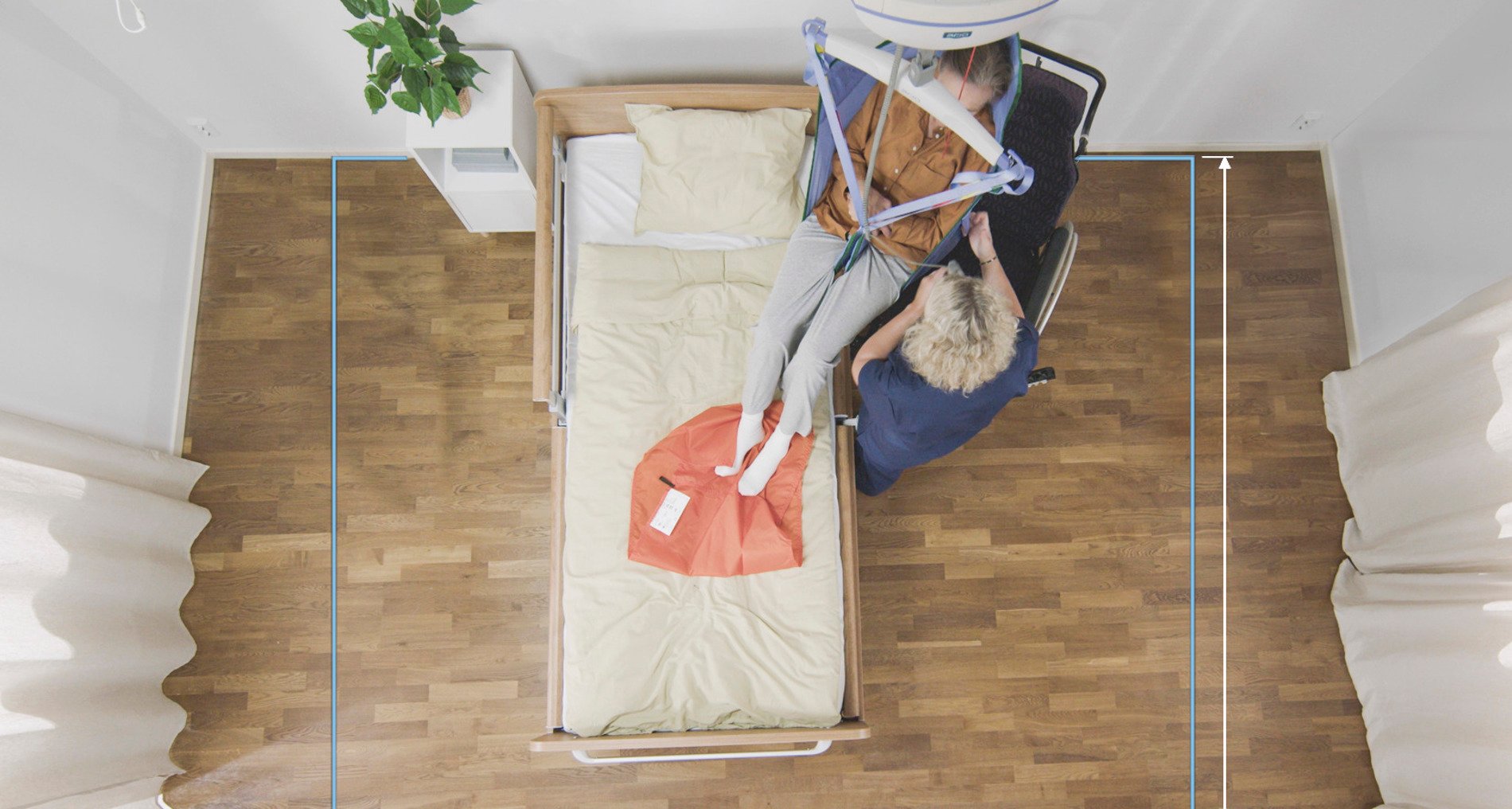
Designing care facilities
Feb 02, 2024
Facility architecture and design in focus: Part 3 – Creating space: the main factor in early floor and room planning
Part 3 of 5. When designing a new healthcare facility, space is the factor that stands out as the main enabler for creating comfortable living conditions for residents and a sound working environment for staff. In the third article in this series, we will focus on the importance of meticulous floor and room planning in the early stages of a project.

Designing care facilities
Feb 02, 2024
Facility architecture and design in focus: Part 4 – Elevate assisted bathing to a spa experience with these planning aids
Part 4 of 5. Making the bathing experience homelike and cosy for the resident at the same time as it becomes practical and ergonomically sound for the carers is a challenge that requires a lot of attention in the design process. The fourth article in this series is dedicated to the art of elevating assisted bathing to a spa-like experience.

Designing care facilities
Feb 02, 2024
Facility architecture and design in focus: Part 5 – Optimal care facility creation: understanding the building process
Part 5 of 5. The entire building process of a healthcare facility, from initial study until the first patients or residents arrive, can take five years or even more. Understanding this process is a major enabler for creating a facility that meets all requirements. In the fifth and final article in this series, we take a closer look at the different stages involved.

VTE prevention
Sep 05, 2023
Understanding the Importance of Compression Therapy in VTE Prevention
When we get a small wound, we often praise our blood’s ability to clot to protect the wound and prevent further blood loss. However, when blood starts to clot in the wrong place at the wrong time, the consequences can be life-changing, even fatal. Every year, blood clots in the deep veins cause extensive suffering for millions of people. In this article we’re taking an in-depth look at blood clots, their causes and how the Flowtron Active Compression System can help prevent the condition.
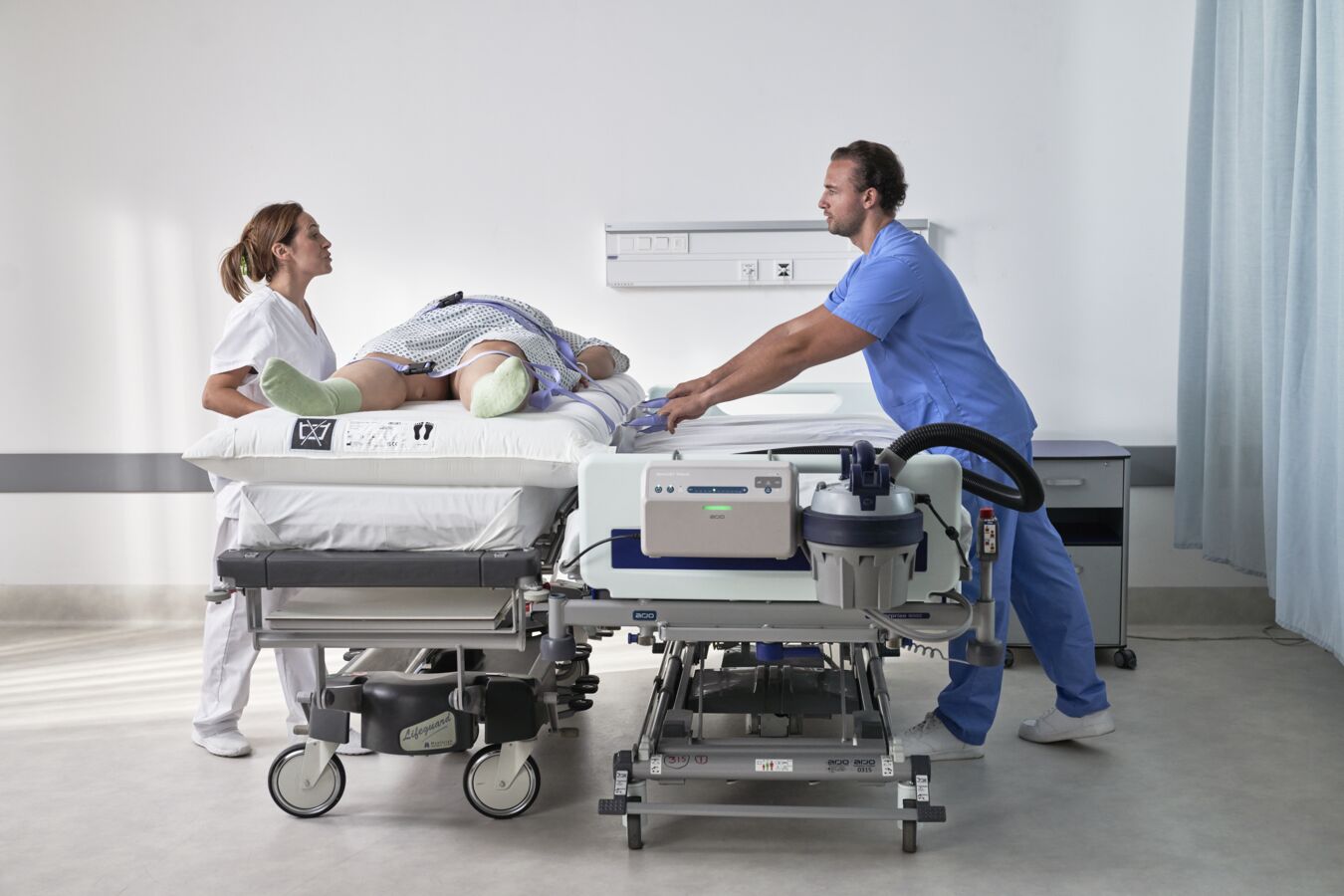
Patient handling
Jun 08, 2023
5 things to consider when choosing an air-assisted transfer device
The lifting and transferring of patients play a pivotal role in caregiver’s health and musculoskeletal injury risk, which can impact turnover and lead to staffing shortages, thus affecting overall levels of patient care¹,². This risk of injury has increased with the rising number of plus size patients seeking healthcare.³
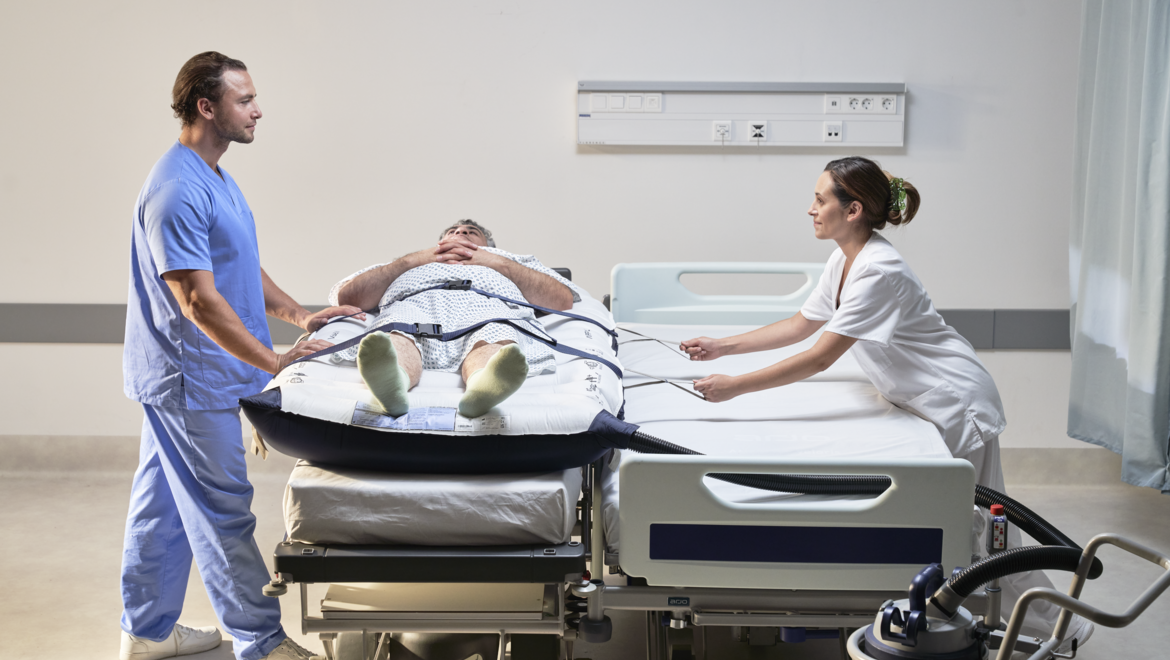
Patient handling
Jun 08, 2023
AirPal: much more than a patient lateral transfer
With the AirPal® air-assisted patient transfer system, you can transfer patients from one surface to another and reposition within the bed safely, comfortably and efficiently. AirPal supports the patient on a bed of air, an elevating effect created by air flowing through the perforated underside of the AirPal transfer mattress, lifting the patient away from the bed surface.
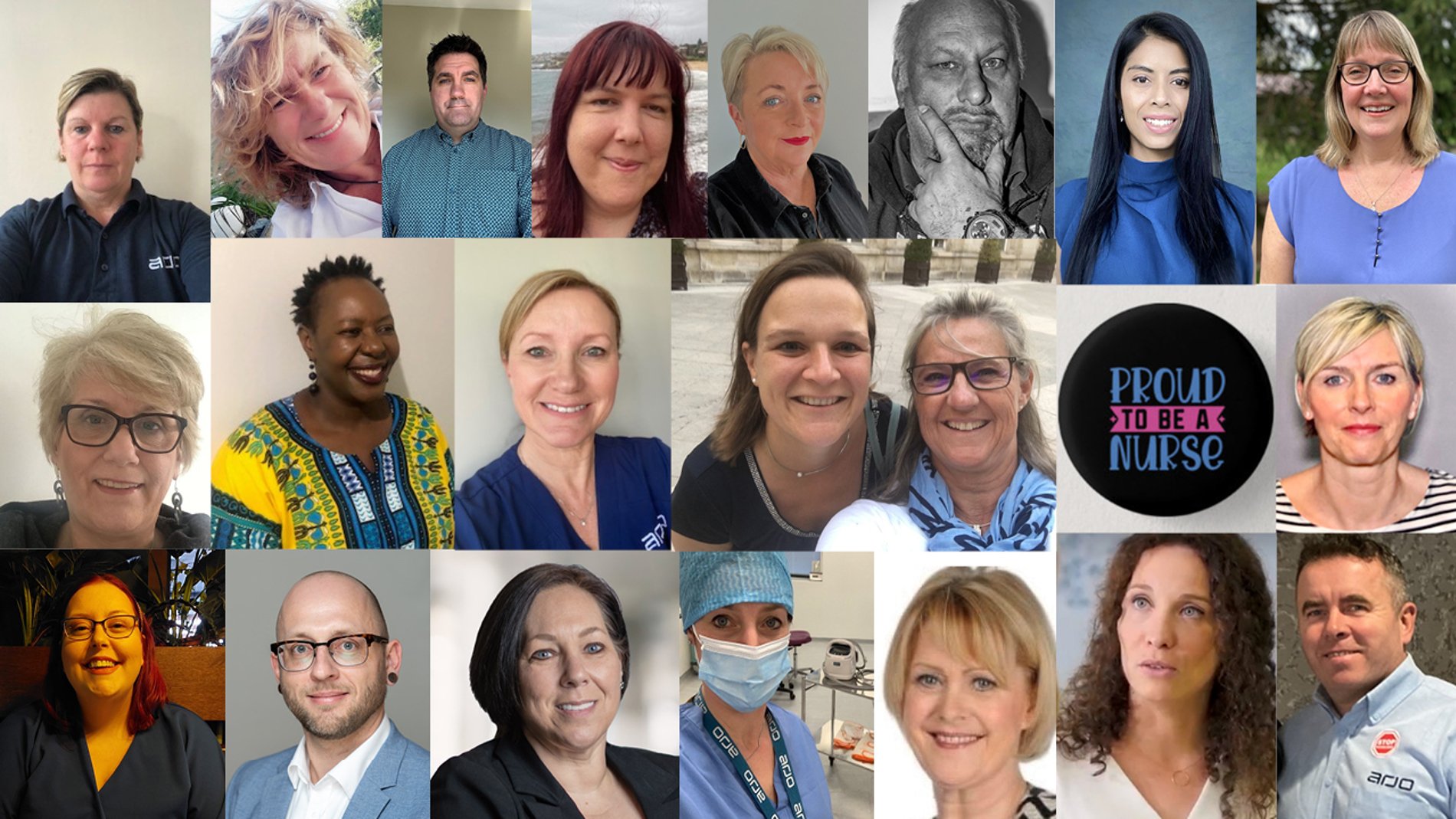
General
May 10, 2023
Nurses empowering nurses: How quality of care is elevated through a shared mission and passion
Caregivers are the backbone of healthcare systems around the globe. And the over 100 trained nurses in Arjo’s organisation give healthcare providers a partner with a deep understanding on what it really takes to care for people in need, often in exceptionally challenging circumstances.

Patient handling
Apr 11, 2023
Tips and techniques to consider when using slide sheets under the patient
Using slide sheet devices for in-bed movements has benefits not only for safety, but also for the patients’ comfort, security and dignity¹.
The risks of moving the full body weight of a dependent patient are well recognised. For horizontal transfers and many in-bed movements, the provision of a friction-reducing slide sheet may be a sound solution for reducing physical effort and improving patient comfort.¹,²

Patient handling
Apr 11, 2023
Do you consider these 7 factors in the patient mobility assessment process?
The International Standards for manual handling of people in the healthcare sector discuss various methods of assessment1. The most essential transfers take place multiple times throughout the daily journey. Risk assessment helps to identify the most appropriate transfer and equipment for the situation and activity to be carried out. This helps promote functional mobility and reduce the risk of caregiver injury.

Patient handling
Apr 11, 2023
5 solutions to support single-handed care
The term single-handed care simply refers to a means of safely transferring an individual with the correct equipment and appropriate number of carergivers.
In some care environments, there have long been ‘informal working practices’ automatically requiring the need for two caregivers when assisting with patient handling activities. However, in recent years there has been a definite shift towards the provision of single-handed care, especially within long-term care settings.¹

Patient handling
Apr 11, 2023
Preventing caregiver injuries: How floor and ceiling lifts can help
Routine care tasks should not put caregivers at risk. Caregivers perform transfer, repositioning and hygiene tasks many times throughout the day. If these essential care tasks are not performed with the right equipment, care processes and skills, they can put caregivers at risk of musculoskeletal disorders (MSD) and injury. It is recommended to use of the right mechanical assistive aids that can improve caregiver safety and reduce the high costs related to caregiver injury.¹
“Mechanical lifts reduce the back-compressive forces on nursing personnel by an estimated 60%”²

Patient handling
Apr 11, 2023
Key considerations for healthcare facilities planning
What is the space needed around the bed to make it easier to get in and out, to maneuver equipment, and for the caregiver to support residents when they need it with less risk of injury?
We understand that planning a facility around the needs of residents and to promote the ability of staff to care for them in a safe and effective way is imperative.
And the earlier it's done the more and better options you'll have and potentially lower overall costs significantly.

Patient handling
Apr 11, 2023
What’s the cost of caregiver injury and patient immobility in healthcare environments?
Patient handling injuries can be costly not only for the caregiver but also for the organisation. The financial impact is associated with injury investigation and potential claim management, temporarily replacing an injured caregiver and litigation/settlement costs. This article aims to evaluate the cost of caregiver injury and patient immobility in healthcare environments and identify potential solutions to mitigate these costs. Patient immobility can have a serious financial impact on the organisation and caregiver injury can result in fewer staff resources and reduced working efficiencies.
“The use of the right mechanical assistive aids improves caregiver safety and reduces injury related costs for the organisation”¹

Early Mobility
Mar 07, 2023
How a lack of assistive equipment can be a barrier to mobility in the ICU
Early mobilisation of ICU patients has been associated with improved muscle strength and functional independence, as well as a shorter duration of delirium, mechanical ventilation, and ICU length of stay. ¹⁻⁵

Pressure injury prevention
Dec 02, 2022
Preventing Pressure Injury in Prone Positioning
Prone positioning, which involves turning a patient over so that they lie in a chest-down, is a well-established intervention for ARDS. It has been shown to improve oxygenation and prevent ventilator-induced lung injury due to the more uniform distribution of lung stress and strain1,2.

Hygiene
Sep 14, 2022
How can slower hygiene routines make your job safer and faster?
When carers are overworked, keeping wellness, comfort and dignity top-of-mind during daily routines can be challenging. How can each hygiene routine turn into an opportunity for comfort, dignity and the kinds of interactions that make a positive difference to the people in our care?

Hygiene
Sep 14, 2022
How can slower hygiene routines make your job safer and faster?
When carers are overworked, keeping wellness, comfort and dignity top-of-mind during daily routines can be challenging. How can each hygiene routine turn into an opportunity for comfort, dignity and the kinds of interactions that make a positive difference to the people in our care?

Hygiene
Sep 14, 2022
3 simple details for a more relaxed bathing experience
Everyone in care acknowledges that the benefits of a good hygiene routine go far beyond cleanliness. When all goes smoothly, residents feel relaxed and comfortable. But sometimes bathing can be the cause of friction, and the difference between a stressful bathing experience and one that is calm and comfortable can hinge on a few simple things. So, what are these ‘three simple details’?

Mobility
Aug 30, 2022
Rehabilitation through early mobilization after surgery – your guide to helping people recover faster
In the aftermath of the COVID-19 pandemic, healthcare providers around the world are facing huge backlogs of surgeries and treatments. Efforts to shorten recovery times for patients by supporting early mobilization can help to increase the flow of patients in hospitals.
Using assistive patient handling solutions is an efficient way to help regain or maintain mobility – and we are here to support every step on the way. Our Rehabilitation guide helps to empower movement, while reducing the risk of caregiver injuries.
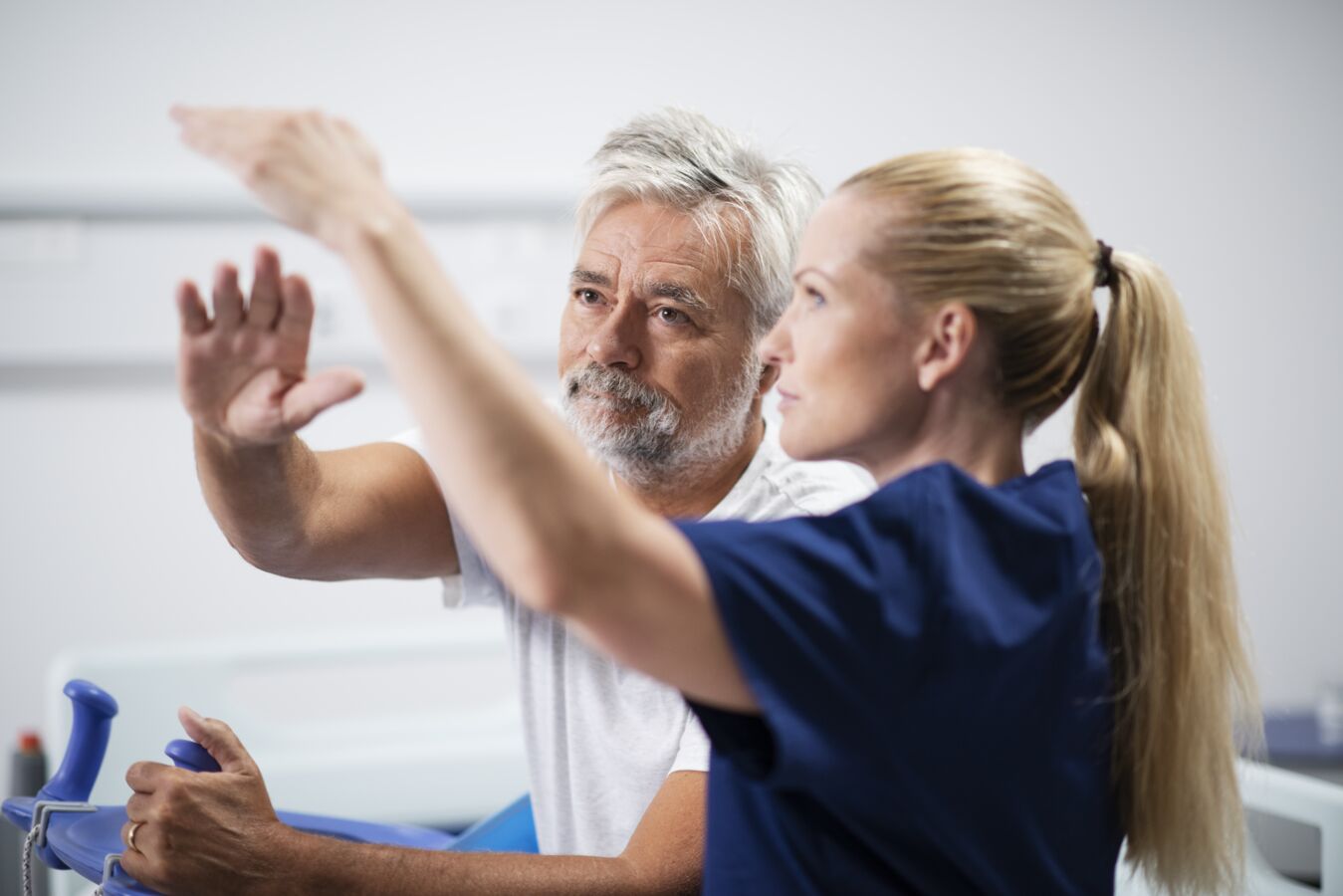
General
Jun 28, 2022
How can you offer more high-quality healthcare with fewer resources?
Global healthcare is under pressure from growing care needs, rising costs and increasing demands for a reduced environmental impact. In order to optimize their use of resources, healthcare providers need solutions that create value in new and different ways – and for this, mobility is a key driver.

General
Jun 02, 2022
Container reductions, reusable boxes and waste savings: Three successful projects for a more sustainable healthcare supply chain
Three recently completed projects are the latest steps on our sustainability journey through a continued commitment to being a responsible company with a sustainable offering throughout the value chain.
_Blog%20Image_PNG.png)
Pressure injury prevention
Apr 24, 2022
The time factor in Alternating Pressure
Why “Lower for Longer” is the driving principle behind the performance of an Alternating Pressure surface.
_Blog%20Image_PNG.png)
Pressure injury prevention
Apr 24, 2022
How our cover fabrics are designed to support infection control
A mattress cover should support the prevention of cross-contamination – without compromising the performance of the support surface.
_Blog%20Image_PNG.png)
Pressure injury prevention
Apr 24, 2022
What could a One Surface Strategy mean for you?
From the time PI risk is assessed to ensuring the appropriate intervention, time can be a crucial factor in improving outcomes for caregivers and those in their care.

Service
Sep 23, 2021
Arjo Care Covid-19 Report: Canada
The Covid-19 pandemic has put our customers in healthcare around the globe – and the field service teams who support them – in extraordinary situations.
From Canada, we talked to field service technicians Derryk Wilson, Roger Liu, Jarret Chessell, Pat Reardon, Steve Grein and Trevor James, all of whom drew from past experiences to stay safe and support our customers “outside the box”.

Wound care
Sep 10, 2021
A revolution in wound therapy turned Haide’s life around
A 16-week treatment with Arjo’s new WoundExpress™ helped to turn life around for Haide Nordh in Sweden. After almost giving up on overcoming the pain and immobility caused by her venous leg ulcers (VLU), the treatment has enabled her to move more freely again.

Service
Aug 19, 2021
What Makes Our Genuine Parts “Genuine”?
We define genuine parts as parts that have been thoroughly validated to be compatible with our equipment. Arjo experts explain this meticulous process, and what makes it all worthwhile.
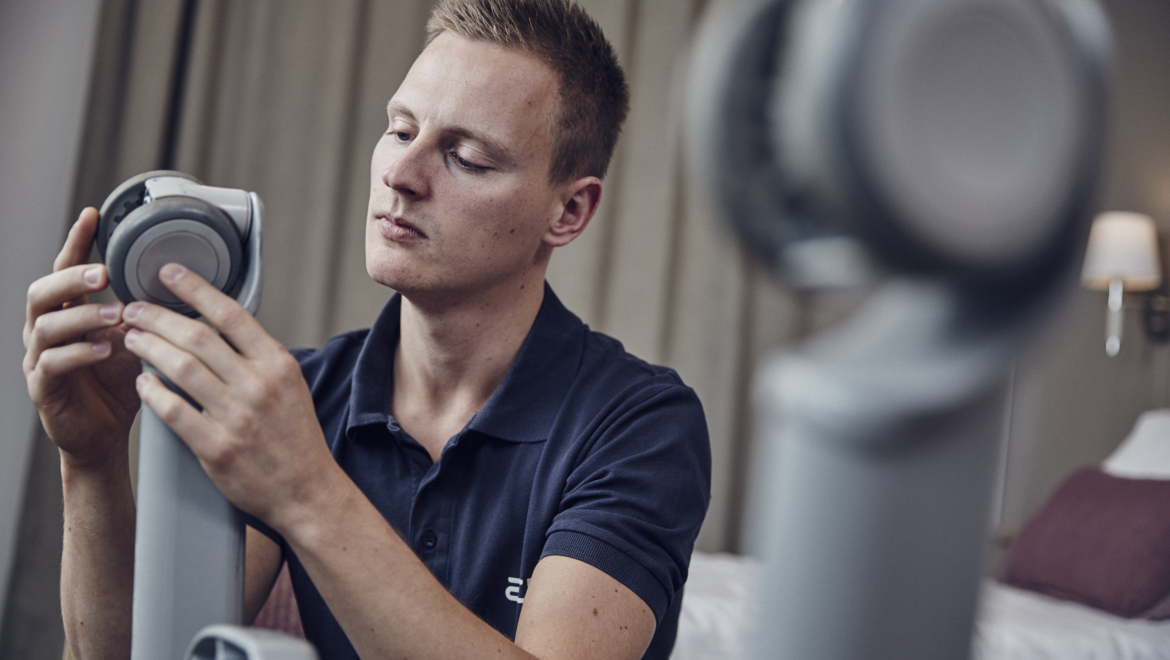
Service
Aug 19, 2021
Genuine Parts: No Part Too Small
Arjo technical experts weigh in on why each individual part that makes up our equipment plays an important role in supporting care that improves outcomes.

Service
Aug 18, 2021
Service and Genuine Parts: An investment in safety, efficiency, and compliance
The right service partner needs to support the reliability and longevity of your equipment, as well as your commitment to safety and compliance. Our panel of technical experts explain.

Pressure injury prevention
Jun 06, 2021
How to prevent pressure injury during patient rehabilitation
Empowering movement is fundamental to any patient rehabilitation programme and is a core principle in the prevention of pressure injury development. With the impact of the current pandemic, the focus on mobilising and rehabilitating patients earlier and often throughout the day has never been higher.

Pressure injury prevention
Jun 03, 2021
Meeting the infection control challenge when selecting a support surface
Healthcare settings face the challenge of managing an effective Infection Control protocol on a daily basis. Ensuring the safety of patients and staff at all times, in a range of different settings requires a robust process, where care and treatment can be delivered without the risk of infection due to poor hygiene standards.

Pressure injury prevention
Jun 02, 2021
Preventing Pressure Injuries in Patients with Reduced Mobility
Reduced mobility is a significant risk factor for pressure injury development, international guidelines emphasise the need for regular turning and repositioning of patients to help prevent skin damage¹. While a pressure redistribution mattress may enable the repositioning regimen to be individualised, regular postural change is still important but not without risk to the patient or caregiver.

Pressure injury prevention
May 31, 2021
How to manage microclimate in the plus sized patient?
According to a 2016 report by the WHO, globally there are 650 million people that are obese accounting for approx. 13% of the world’s adult population¹.
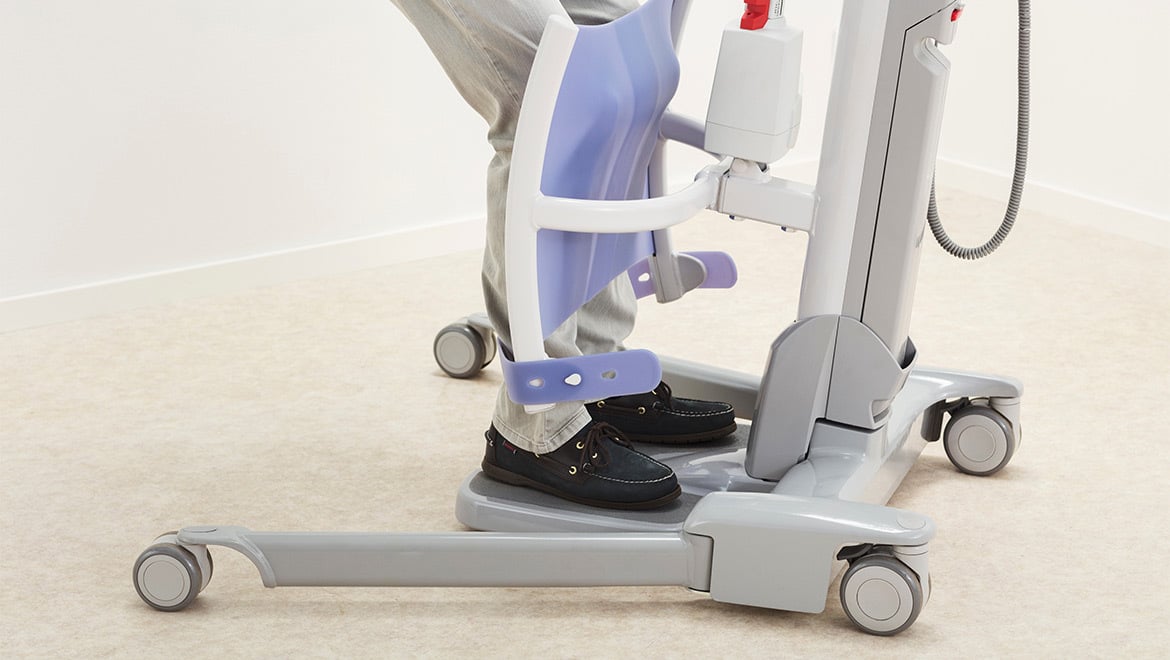
Patient handling
May 05, 2021
Sit to stand study shows Sara Flex 'allows more forward knee movement'
An evaluation of 6 different sit to stand devices for use in rehabilitation shows an 'overwhelming preference' for the Sara® Flex knee support during a study in Loughborough University, UK.

Mobility
Apr 21, 2021
How many sit-to-stand transfers do caregivers perform with their patients per day?
Promoting mobility among patients and residents in care facilities is critical for healthy daily lives.
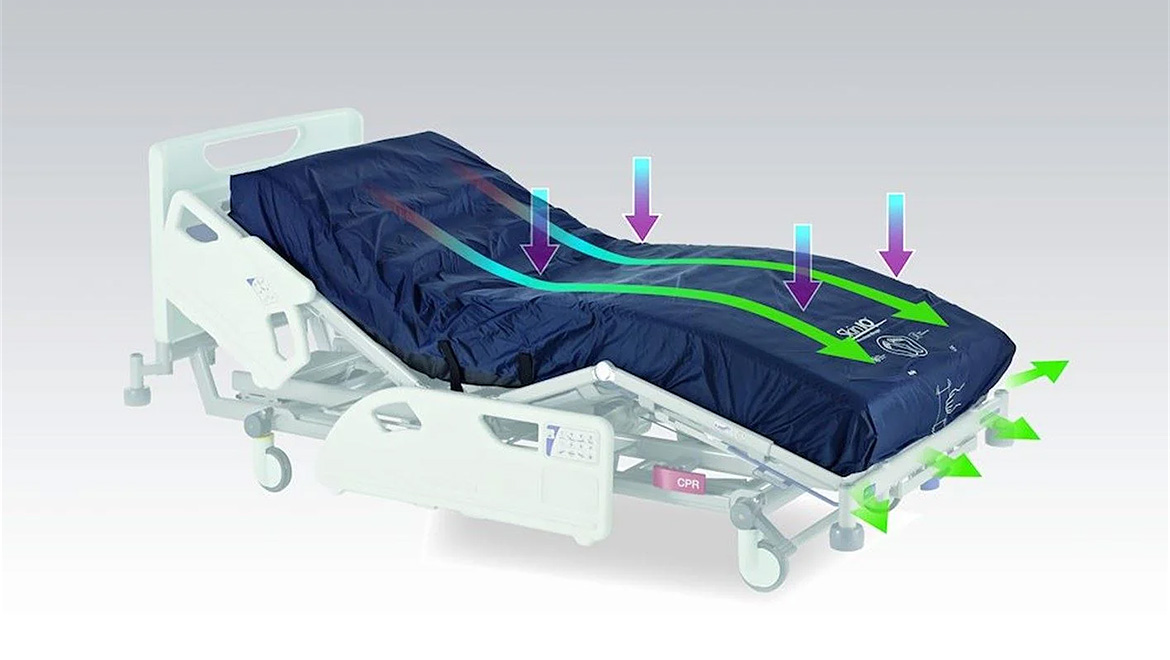
Pressure injury prevention
Apr 07, 2021
Managing skin microclimate with Skin IQ's Negative Airflow Technology
The International Pressure Ulcer Prevention and Management Guidelines discuss how managing microclimate can provide an environment conducive to injury prevention and tissue repair. As such the guidelines recommend the need for additional features such as the ability to control moisture and temperature when selecting a support surface.

Mobility, Medical beds
Mar 29, 2021
The ergonomic effects on caregivers when transporting patients in hospital beds
Transporting patients on hospital beds is an ergonomically high risk activity for caregivers. However, the use of powered assisted beds can have a positive impact on their work lives. Read an extract from 'A case for powered bed transport' whitepaper below.

Medical beds
Mar 17, 2021
For hospitals looking to reduce ergonomic risk, IndiGo offers a helping hand
IndiGo is always available and built directly into the bed, so only one thing changes in a caregiver’s day: the amount of work required to move the bed.

Medical beds
Mar 17, 2021
For hospitals looking to reduce ergonomic risk, IndiGo offers a helping hand
IndiGo is always available and built directly into the bed, so only one thing changes in a caregiver’s day: the amount of work required to move the bed.
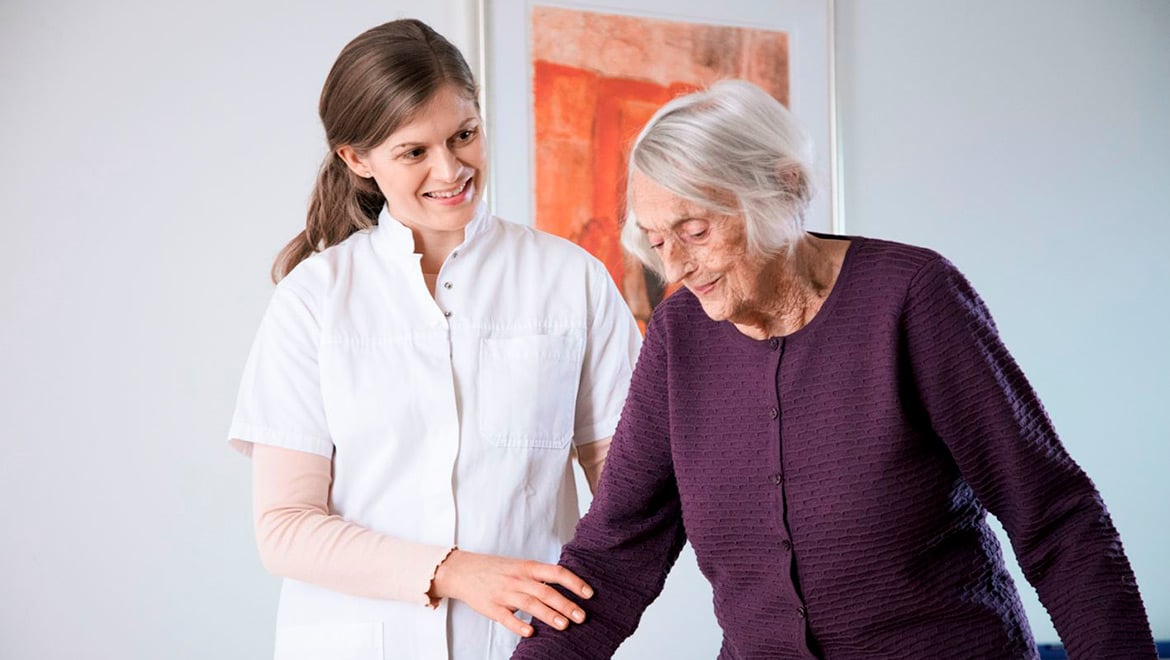
Mobility, Patient handling
Mar 01, 2021
How to choose a patient transfer device depending on mobility level
Patient transfer tasks occur across multiple healthcare settings and are often high risk activities for both caregivers and patients. Risk of patient and staff injury has led to the development of global Safe Patient Handling programmes.

Medical beds
Feb 16, 2021
What technologies are used to aid caregivers in transporting patients on hospital beds?
There are different types of power assisted transport technologies used with hospital beds that help caregivers reduce effort in transporting patients throughout the facility.
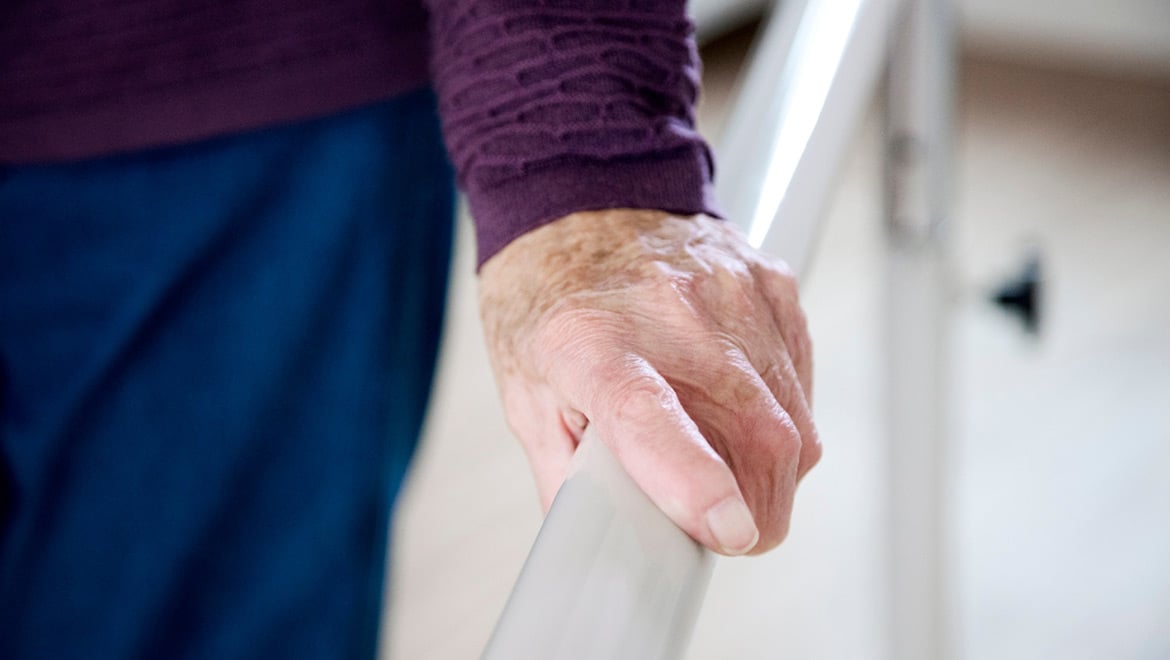
Patient handling
Feb 02, 2021
5 things to consider when choosing a sit to stand lift for patient transfers
Standing and raising aids, also known as sit-to-stand devices/lifts, are used by caregivers to transfer patients or residents between two seated postures, for example, seated on the edge of the bed to a wheelchair, or wheelchair to commode or shower chair.
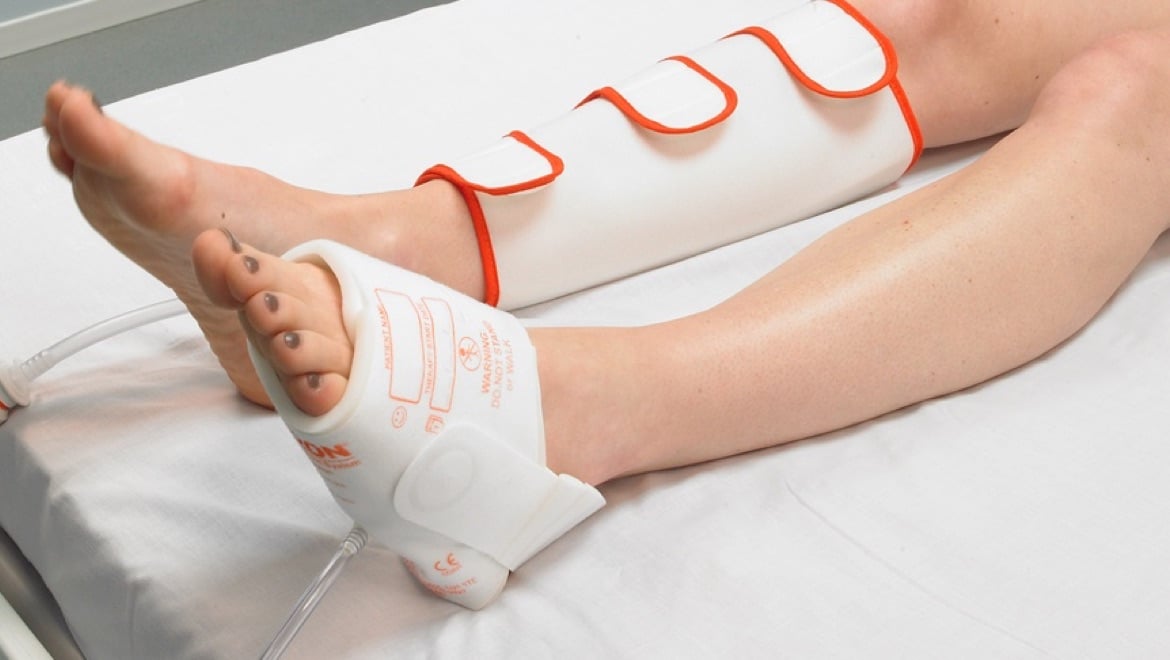
VTE prevention
Jan 27, 2021
How is mechanical prophylaxis used in VTE Prevention?
Venous Thromboembolism (VTE) is a leading cause of death and disability worldwide but research suggests that it can be preventable through evidence-based prevention strategies. Learn more about mechanical prophylaxis and Intermittent Pneumatic Compression (IPC) with our downloadable summary below.

Designing care facilities
Jan 12, 2021
Planning and designing long term care and health care facilities: a person centered approach
When designing a care environment, people – in this case residents in long-term care settings and patients in acute care settings, as well as the caregivers – should be at the centre of the entire process. This focus is essential to achieve an attractive and efficient environment that stands the test of time.
